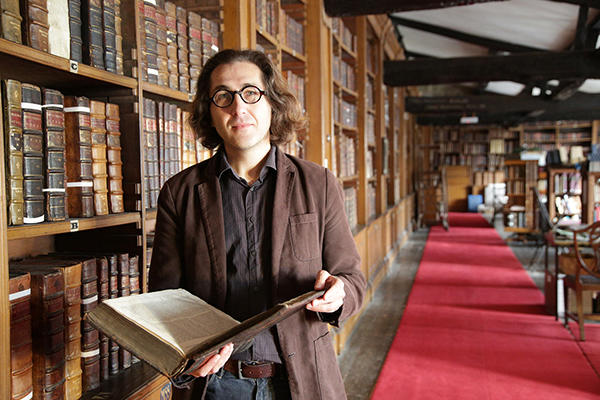The reality of what it was like to live through the Civil War in the Midlands is among the stories to be explored by a University of Worcester historian at a special talk next week.

Darren Oldridge, Professor of Early Modern History, will be revealing the experiences of a range of individuals in the 1640s and 1650s, through a number of books that survive from the period in a presentation at The Commandery.
The stories include those of individuals that lived in the region, such as Richard Baxter, the Minister of Kidderminster who witnessed the bloody aftermath of the battle of Edge Hill, in Warwickshire, in 1642.
His autobiography provides just one of a number of varied perspectives on the Civil War and its aftermath that Professor Oldridge will be using in his talk, on March 3 at 2pm.
"The human stories in these works are extraordinary," said Professor Oldridge. "Baxter was preaching at Alcester in Warwickshire in October 1642 when he heard cannon shot from the battlefield at Edge Hill. The next day he visited the site and saw a thousand dead.
"His is just one of a number of voices that will bring to life what it was like to be alive in this tumultuous period.
"Hundreds of years on, it is easy to forget the horrors of war that were visited on Worcester and on other cities and towns where battles were fought. In 1651, at least 3,000 perished at the Battle of Worcester alone. Another thousand were taken as prisoners of war, with many sent to the Fens to dig drainage canals. Per capita, many more Britons died in the English Civil Wars than the First World War. It is no wonder that one of the writers in my presentation called the 1640s a time of "misery, ruin and desolation"."
Those attending will also hear about the future parliamentarian William Prynne, who denounced the "ungodly" fashion for long hair at court, but six years later was forced to adopt the fashion, after he was sentenced to have his ears cut off, to cover the mutilation. They will also hear how Thomas Fairfax, the leader of the New Model Army that overthrew Charles I, wept after the king was executed.
As part of the talk, people will have the chance to hold and turn the pages of the original texts. These have now been put in display cases at The Commandery in the lead up to the event, which will then be unlocked as part of the talk. The texts include autobiographies, but also pamphlets printed by both sides, and even a news report from January 1649 of the trial of the king
"The reality of what happened can be lost when it is shut in glass cases," said Professor Oldridge.
"This is why I love the idea of displaying books from the period in cabinets in The Commandery, and then unlocking them to let people take them out."
The event at The Commandery is free to visitors but normal entrance charges will apply. To reserve a place email commandery@worcestershire.gov.uk.